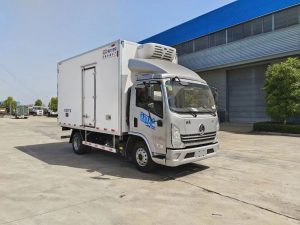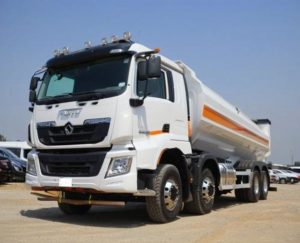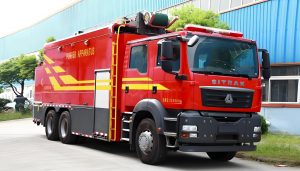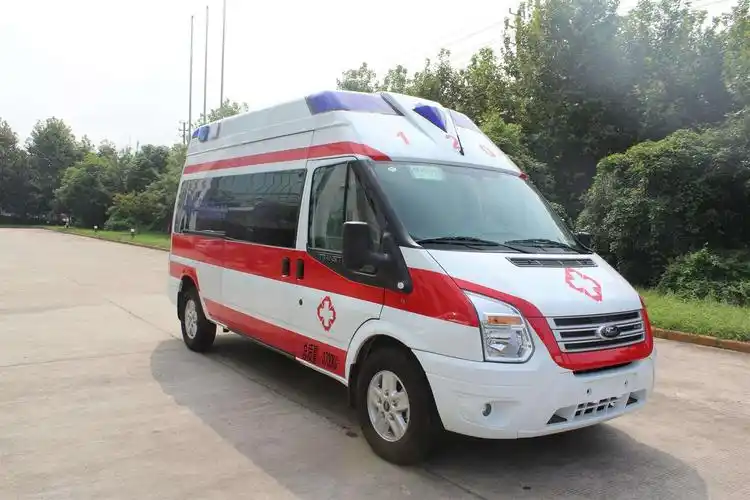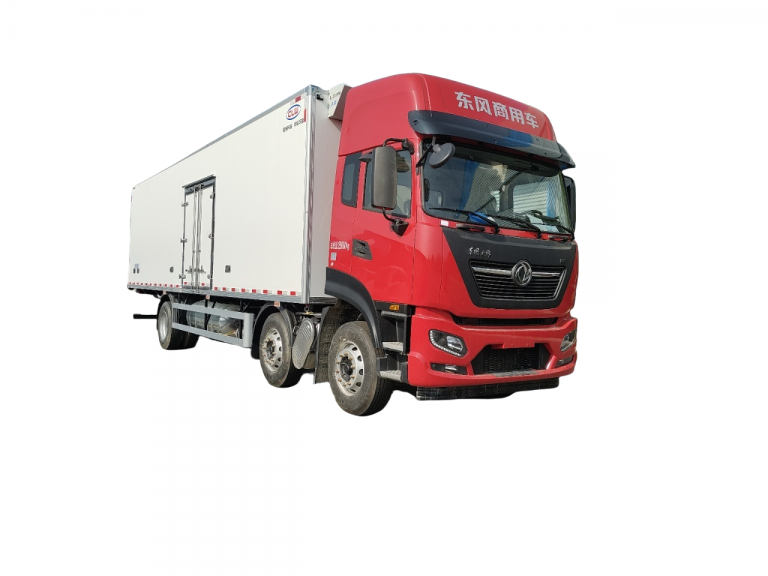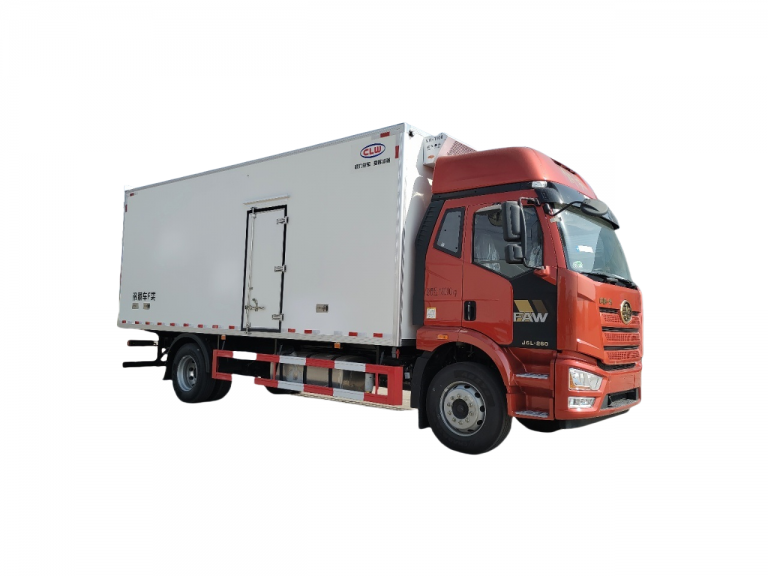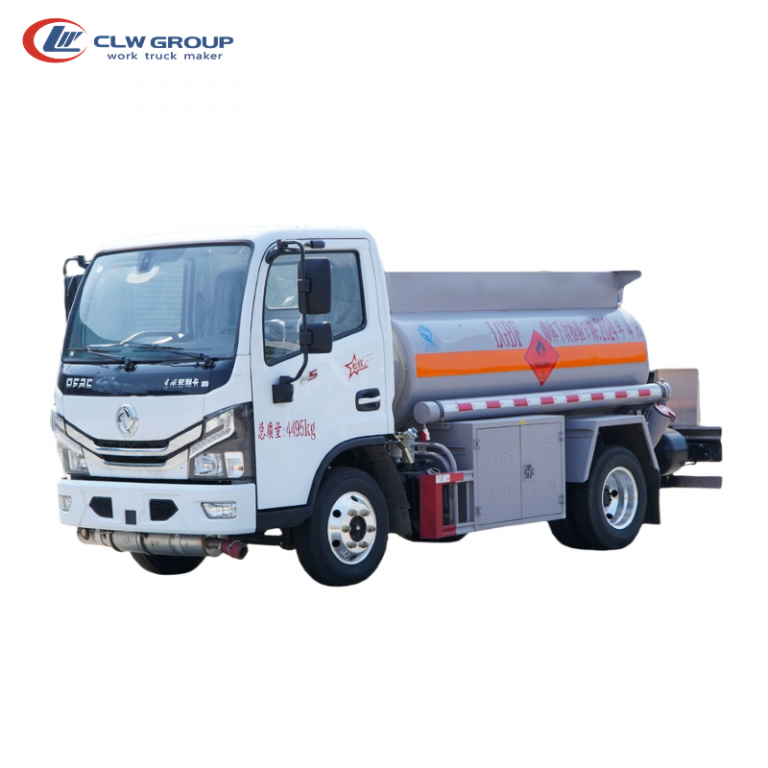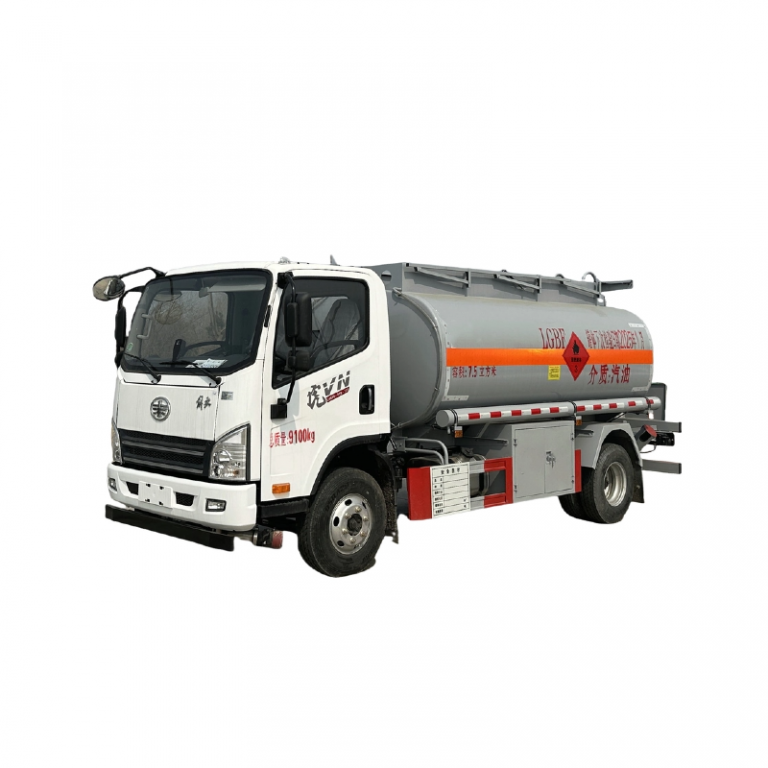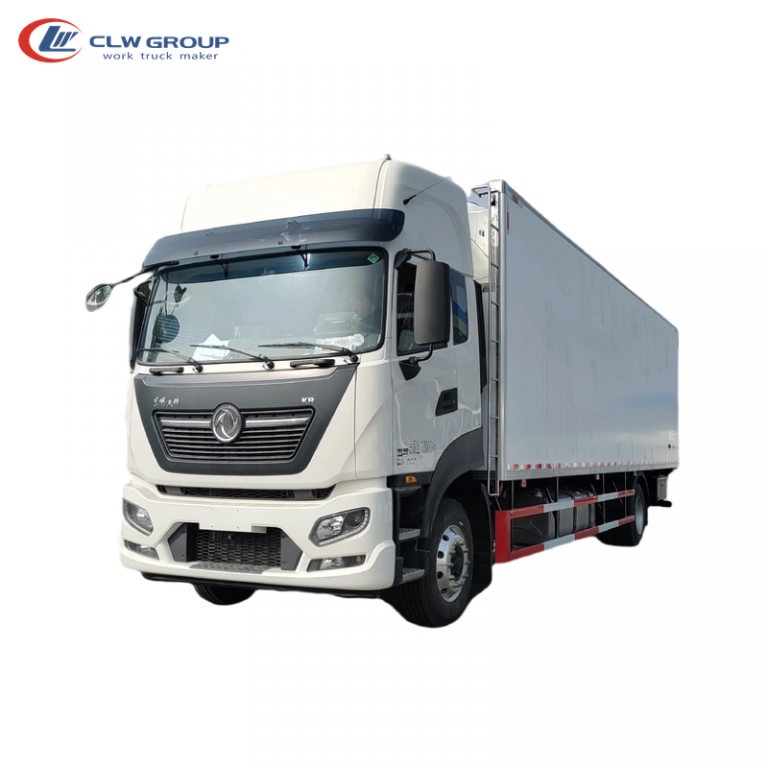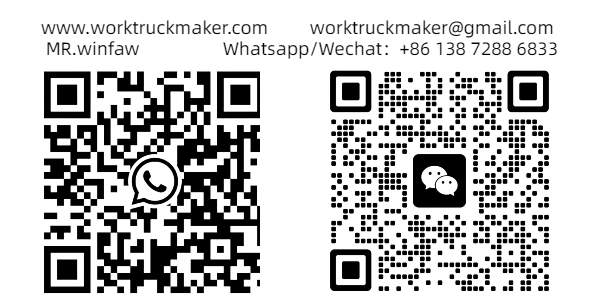Table of Contents
ToggleEnvironmental Considerations
As the world becomes increasingly aware of environmental issues, the logistics industry is taking significant steps to reduce its carbon footprint. Special logistics trucks are at the forefront of this green revolution, incorporating various eco-friendly technologies and designs.
Eco-Friendly Engines
One of the most significant changes in recent years is the shift towards eco-friendly engines. Traditional diesel engines, known for their high emissions, are gradually being replaced by cleaner alternatives. Electric trucks, for instance, are gaining popularity for short-haul deliveries, especially in urban areas where emissions regulations are stricter. These electric vehicles produce zero tailpipe emissions, making them an excellent choice for companies aiming to improve their sustainability credentials.
Moreover, trucks powered by alternative fuels such as compressed natural gas (CNG) and hydrogen are being developed and deployed. These fuels offer a cleaner burn compared to diesel, reducing greenhouse gas emissions and air pollutants. Logistics companies are increasingly adopting these technologies to meet stringent environmental standards and cater to environmentally conscious consumers.
Aerodynamic Designs
Apart from engine innovations, the design of special logistics trucks is also evolving to become more aerodynamic. By reducing air resistance, these trucks can achieve better fuel efficiency, which translates to lower emissions. Advanced computer modeling and wind tunnel testing are used to optimize the shape of the truck, resulting in sleek, futuristic designs that not only look impressive but also contribute to environmental sustainability.
These aerodynamic improvements often include features like streamlined mirrors, roof fairings, and side skirts that minimize drag. By cutting through the air more smoothly, these trucks can travel further on less fuel, reducing their impact on the environment and helping companies save on fuel costs.
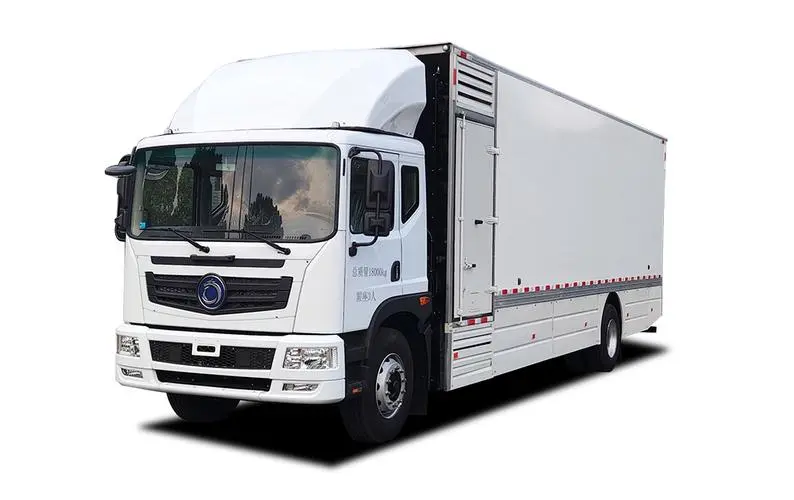
Challenges in Special Logistics Trucking
Despite the advancements and innovations, the world of special logistics trucking is not without its challenges. From navigating complex regulations to ensuring the consistent maintenance of high-tech vehicles, the industry faces several hurdles.
Regulatory Hurdles
Operating across different regions and countries means dealing with a variety of regulations, each with its own set of rules and standards. These regulations can cover everything from emissions and safety to weight limits and driver hours. Navigating this regulatory maze requires logistics companies to stay informed and adaptable, often necessitating dedicated compliance teams.
For instance, while some countries have stringent emissions standards, others may focus more on vehicle safety or road usage regulations. This diversity can complicate international logistics operations, requiring companies to tailor their practices to suit different markets. Failure to comply can result in hefty fines and operational delays, impacting the bottom line.
Maintenance and Upkeep
Special logistics trucks, equipped with advanced technologies and specialized equipment, require meticulous maintenance to ensure they operate at peak efficiency. Regular upkeep is essential to prevent breakdowns and extend the lifespan of these costly vehicles. Think of it as keeping a high-performance sports car in top condition — it requires time, expertise, and investment.
The complexity of these trucks means that maintenance teams must be well-versed in both mechanical and digital systems. From engine diagnostics to software updates, a comprehensive approach is needed to keep everything running smoothly. This can be resource-intensive, but it is crucial for minimizing downtime and maintaining the reliability that customers expect.
Future of Special Logistics Trucks
Looking ahead, the future of special logistics trucks is filled with exciting possibilities. As technology continues to advance and global trade expands, these vehicles will play an ever-more critical role in ensuring the efficient movement of goods.
Emerging Trends
Emerging technologies like the Internet of Things (IoT) and blockchain are poised to revolutionize the logistics industry. IoT devices can provide real-time data on truck performance, cargo conditions, and even external factors like weather and traffic. This data can be used to optimize routes, improve safety, and enhance customer satisfaction by providing accurate delivery times.
Blockchain technology, on the other hand, offers the potential for increased transparency and security in supply chains. By providing a decentralized and immutable ledger of transactions, blockchain can help reduce fraud, streamline customs processes, and improve trust between parties. For special logistics trucks, this means more efficient operations and a higher level of accountability.
Impact of Globalization
As globalization continues to shape the world economy, the demand for efficient and reliable logistics solutions will only grow. Special logistics trucks will be at the forefront of meeting this demand, adapting to the needs of an increasingly interconnected market. Whether it’s delivering goods to remote areas or navigating complex international supply chains, these trucks will be essential in maintaining the flow of commerce.
The integration of renewable energy sources and advanced materials will further enhance the capabilities of these vehicles, enabling them to operate in diverse environments and under challenging conditions. As the world becomes more connected, special logistics trucks will continue to evolve, driving innovation and sustainability in the logistics industry.
The Role of Special Logistics Trucks in Industry Sectors
Special logistics trucks are indispensable across various industry sectors, each with unique needs and challenges. Let’s explore how these trucks cater to specific industries and the role they play in ensuring smooth operations.
Healthcare and Pharmaceuticals
In the healthcare and pharmaceutical industries, the timely and secure delivery of products is crucial. Special logistics trucks equipped with advanced temperature control systems are essential for transporting sensitive medical supplies and pharmaceuticals. These trucks ensure that vaccines, biologics, and other temperature-sensitive products maintain their efficacy by strictly adhering to the required temperature ranges throughout their journey.
Moreover, with the rise of personalized medicine and the need for quick delivery of tailored treatments, these trucks offer the precision and reliability necessary to meet stringent industry standards. They help bridge the gap between manufacturers and healthcare providers, ensuring patients receive their medications on time.
Food and Beverage Industry
The food and beverage industry relies heavily on special logistics trucks to maintain the freshness and quality of products. From farm to table, refrigerated trucks carry a wide array of perishable goods, including fruits, vegetables, dairy products, and meats. By maintaining the cold chain, these trucks prevent spoilage and extend the shelf life of products, ultimately reducing food waste.
Additionally, the growing demand for exotic and imported foods has increased the need for efficient logistics solutions. Special logistics trucks facilitate the transportation of these goods across borders, ensuring they arrive in perfect condition to meet consumer expectations.
Construction and Heavy Equipment
For the construction industry, the ability to transport large and heavy materials is crucial. Flatbed trucks and specialized heavy-duty vehicles are often used to carry construction equipment, machinery, and building materials to job sites. These trucks are designed to handle oversized loads and provide the flexibility needed for loading and unloading bulky items.
As construction projects become more complex and geographically dispersed, the role of special logistics trucks becomes even more critical. They ensure that essential equipment and materials reach their destinations promptly, keeping projects on schedule and within budget.
Innovations Driving Efficiency and Safety
The quest for efficiency and safety in logistics has driven numerous innovations in the design and operation of special logistics trucks. Let’s explore some of these advancements:
Advanced Safety Features
Safety is paramount in the logistics industry, and special logistics trucks are equipped with cutting-edge safety technologies to protect drivers, cargo, and other road users. Innovations such as collision avoidance systems, blind spot monitoring, and automatic emergency braking are becoming standard features in these trucks.
These systems use sensors and cameras to detect potential hazards and assist drivers in avoiding accidents. By reducing the risk of collisions and improving situational awareness, these technologies enhance safety on the road and minimize the likelihood of costly accidents.
Smart Fleet Management
The integration of smart technologies into fleet management systems is transforming how logistics companies operate. Through the use of telematics, IoT devices, and data analytics, fleet managers can monitor and optimize every aspect of their operations.
For instance, predictive maintenance systems use real-time data to identify potential mechanical issues before they become major problems. This proactive approach helps reduce downtime, extend the lifespan of vehicles, and lower maintenance costs. Additionally, route optimization software can analyze traffic patterns and suggest the most efficient paths, saving time and fuel.
The Economic Impact of Special Logistics Trucks
Special logistics trucks are not just crucial for the efficient movement of goods; they also have a significant impact on the economy. By facilitating trade and commerce, these trucks contribute to economic growth and job creation.
Supporting Small and Medium Enterprises (SMEs)
For small and medium enterprises (SMEs), having access to reliable logistics solutions is vital for competing in the global market. Special logistics trucks provide SMEs with the ability to reach new markets and customers, expanding their business opportunities.
By lowering transportation costs and increasing delivery speed, these trucks enable SMEs to offer competitive pricing and improve customer satisfaction. This, in turn, supports economic development and drives innovation within local communities.
Enhancing Global Trade
In an increasingly interconnected world, global trade relies on efficient logistics networks to function effectively. Special logistics trucks play a key role in this ecosystem by ensuring the seamless movement of goods across borders and continents.
By reducing transit times and improving supply chain reliability, these trucks help businesses tap into new international markets and optimize their global operations. As a result, they contribute to the growth of international trade and the integration of global economies.
Conclusion
Special logistics trucks are the unsung heroes of modern supply chains, quietly ensuring that goods reach their destinations on time and in perfect condition. Their specialized capabilities and continuous innovations make them indispensable across various industries, from healthcare and food to construction and global trade.

